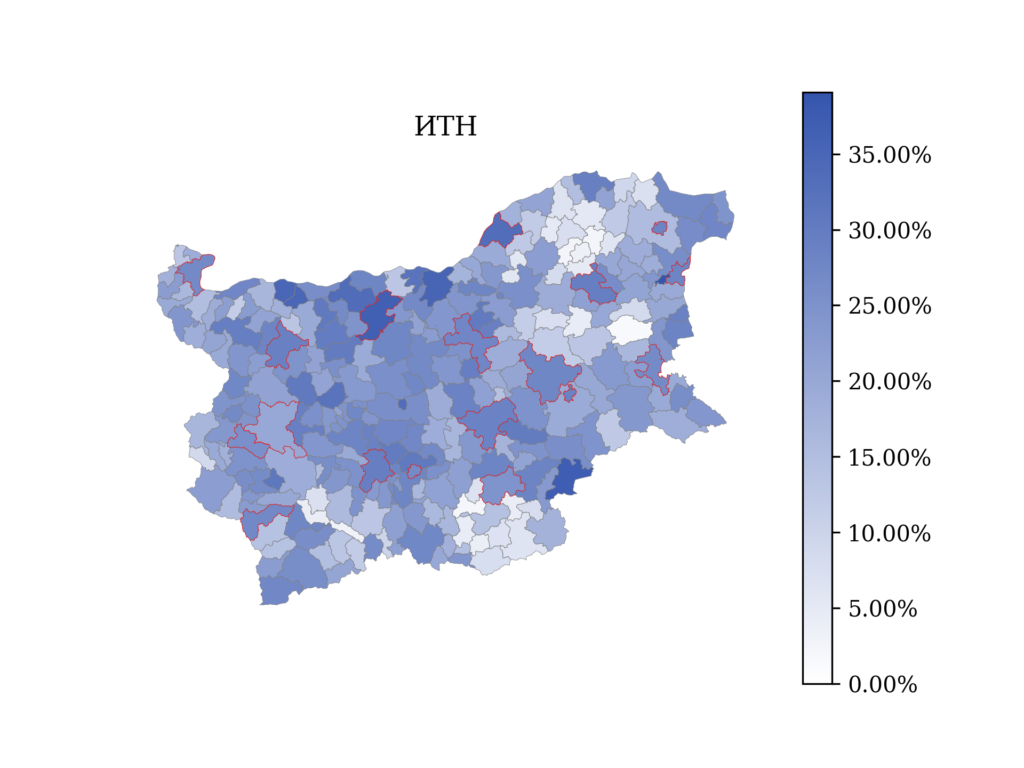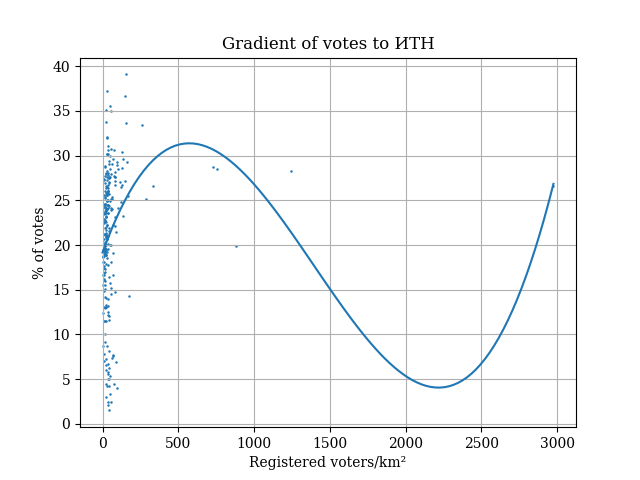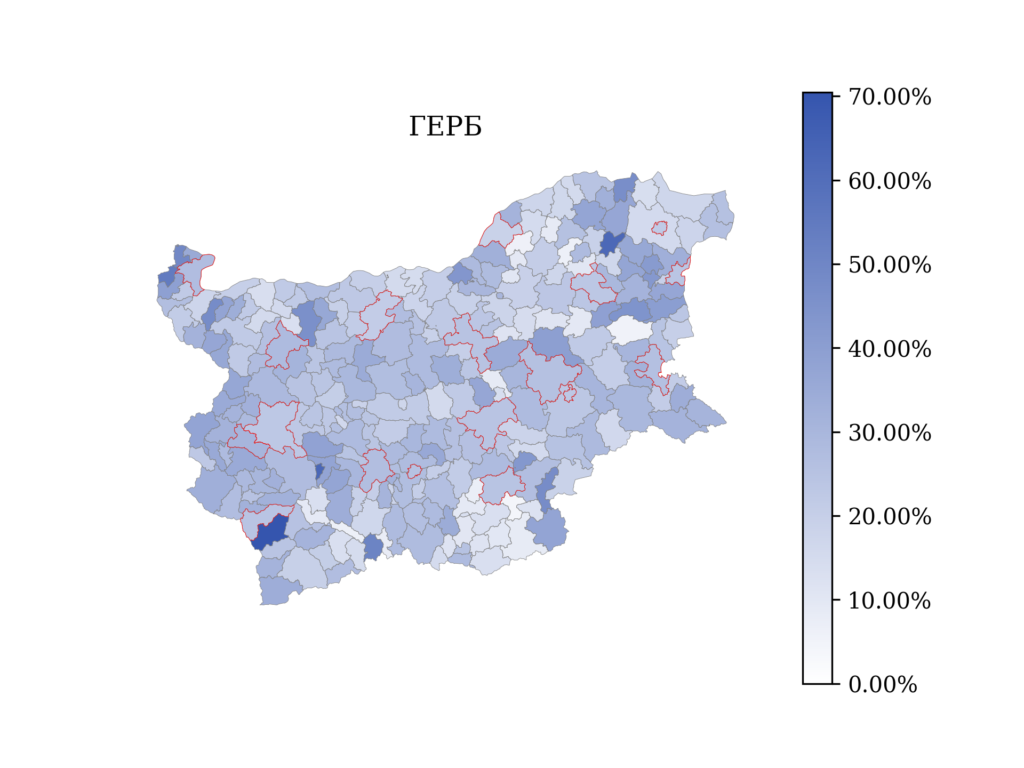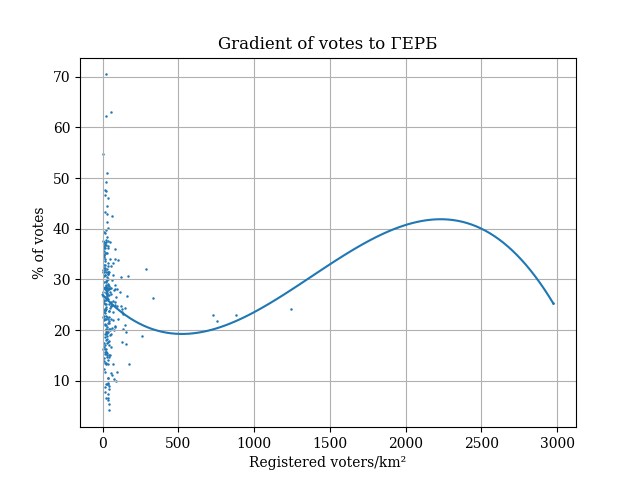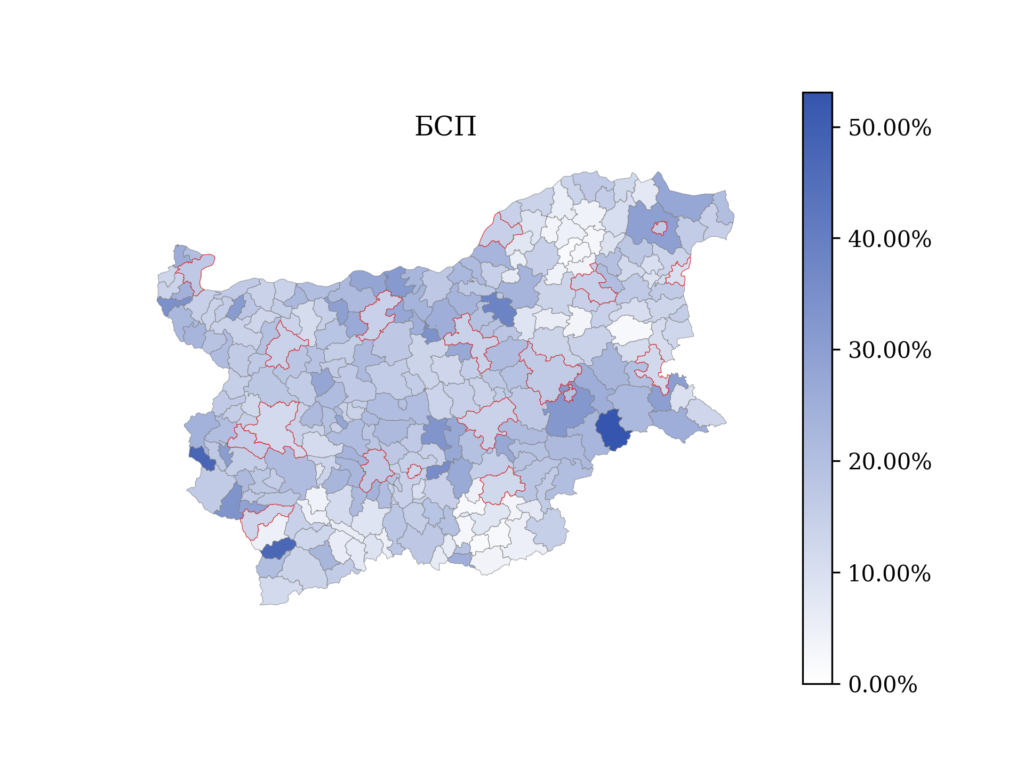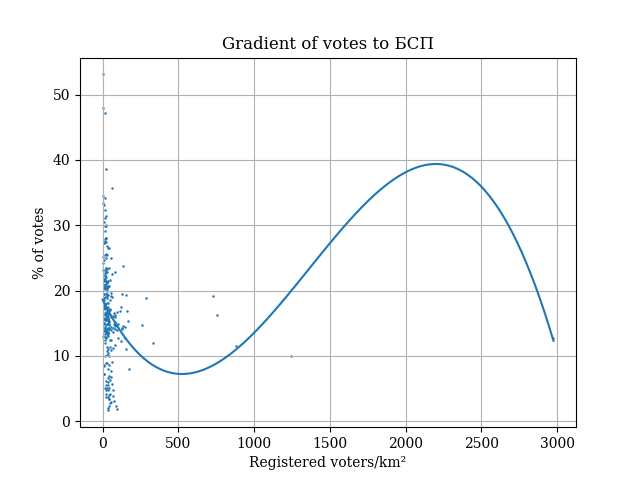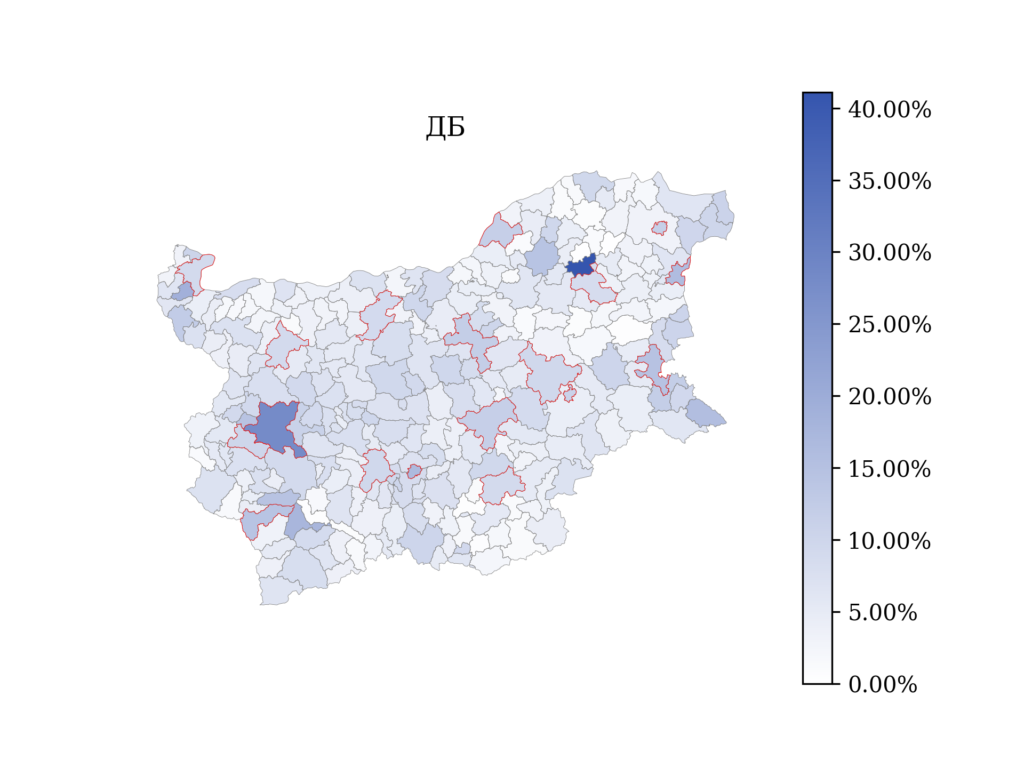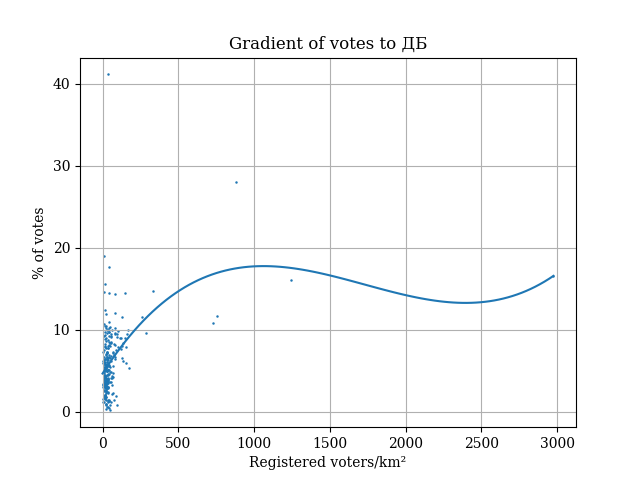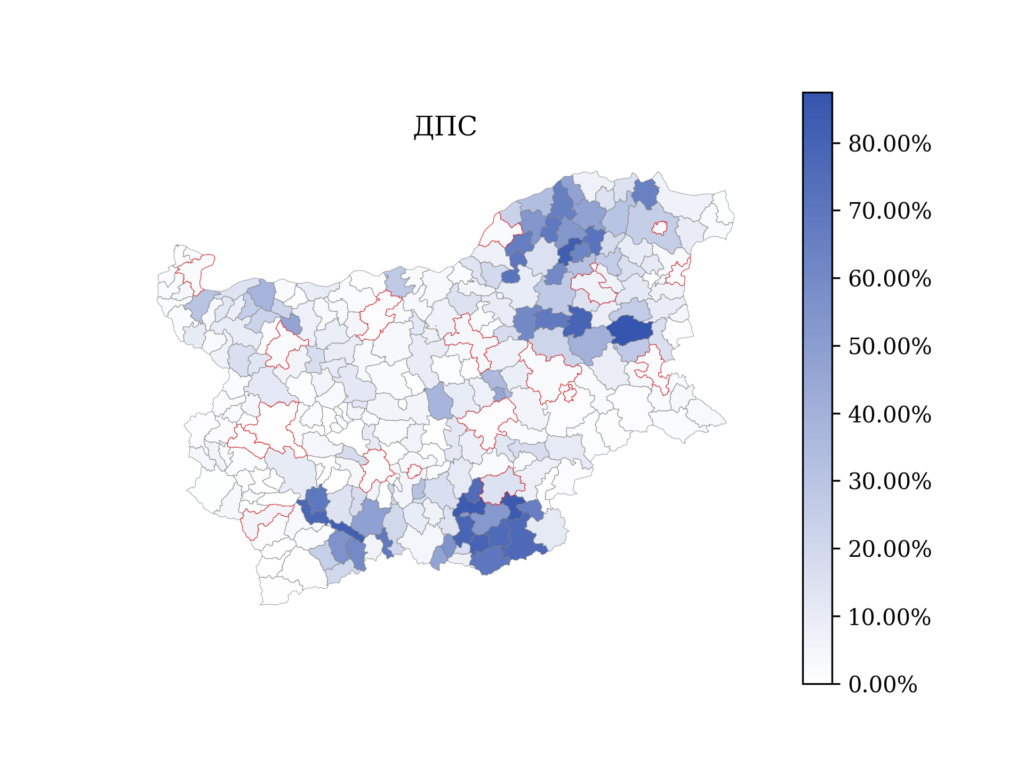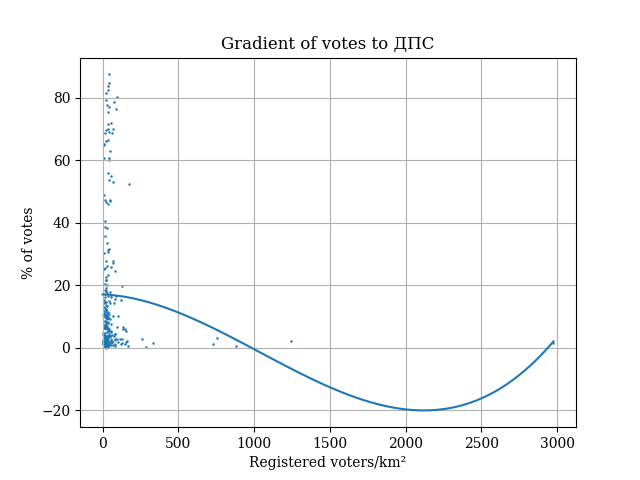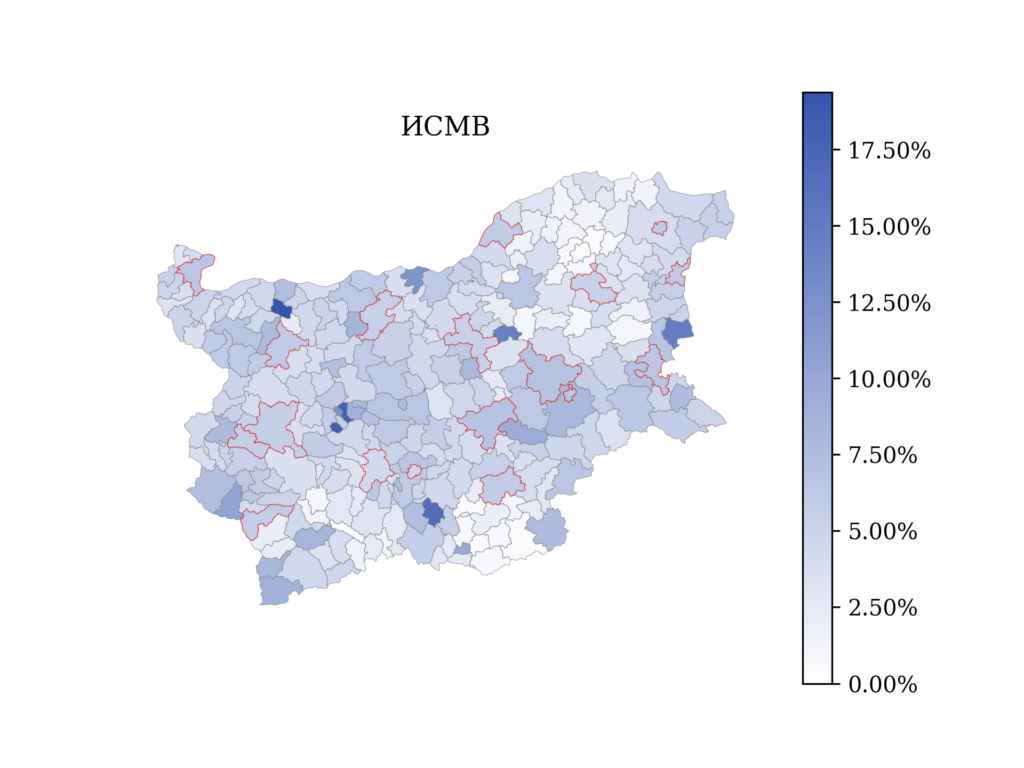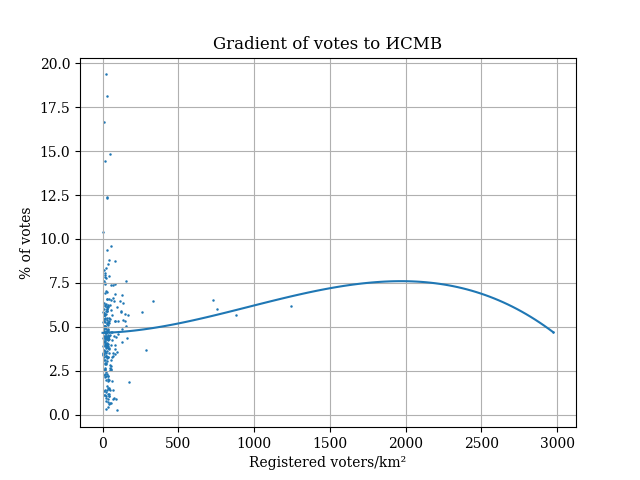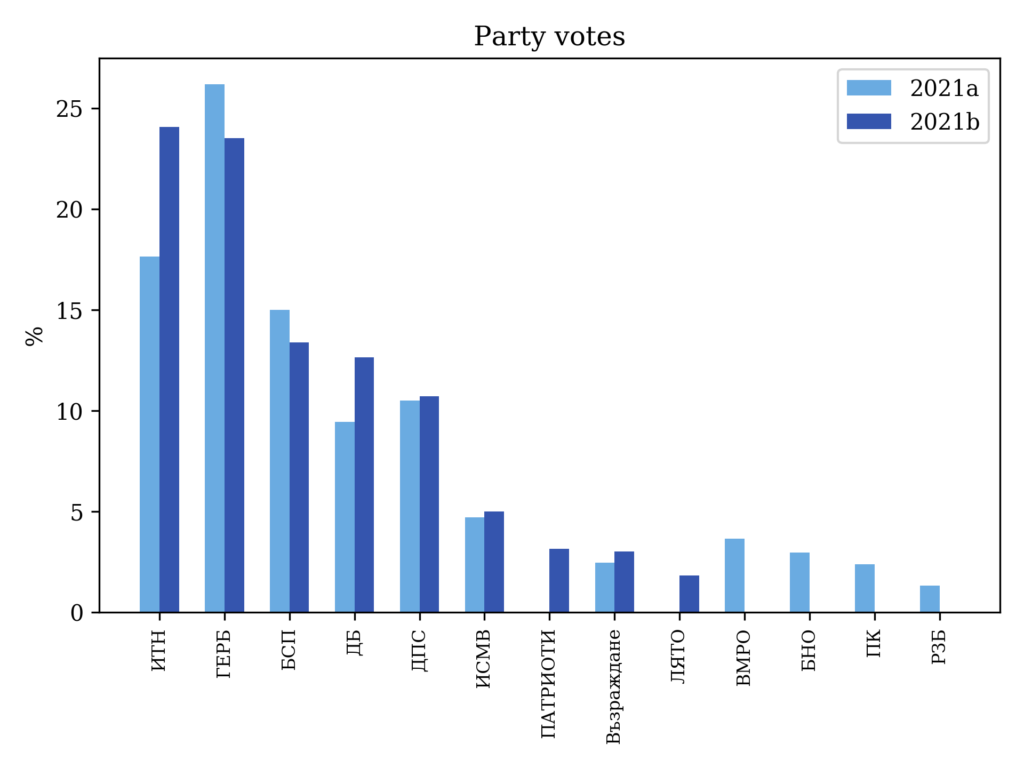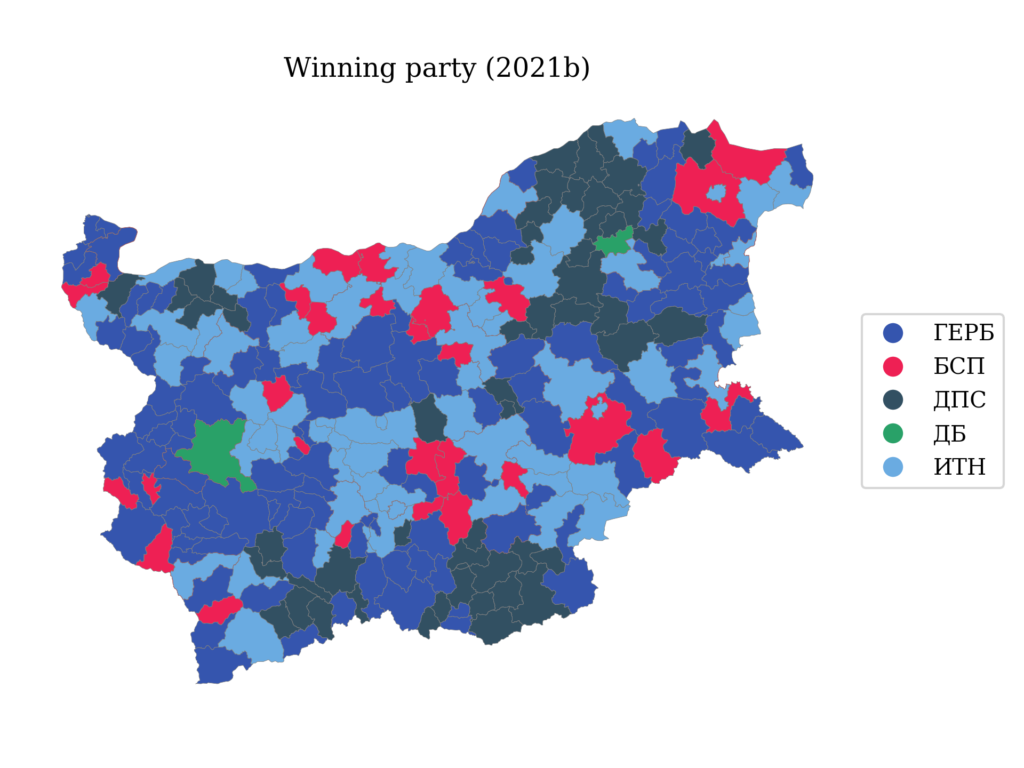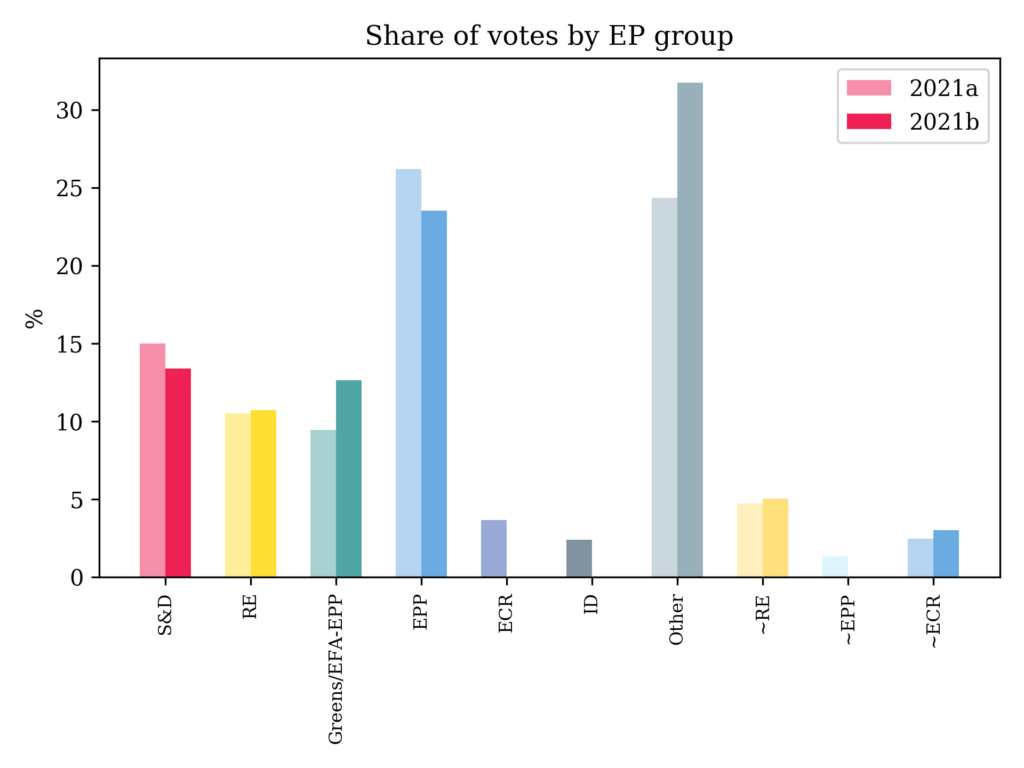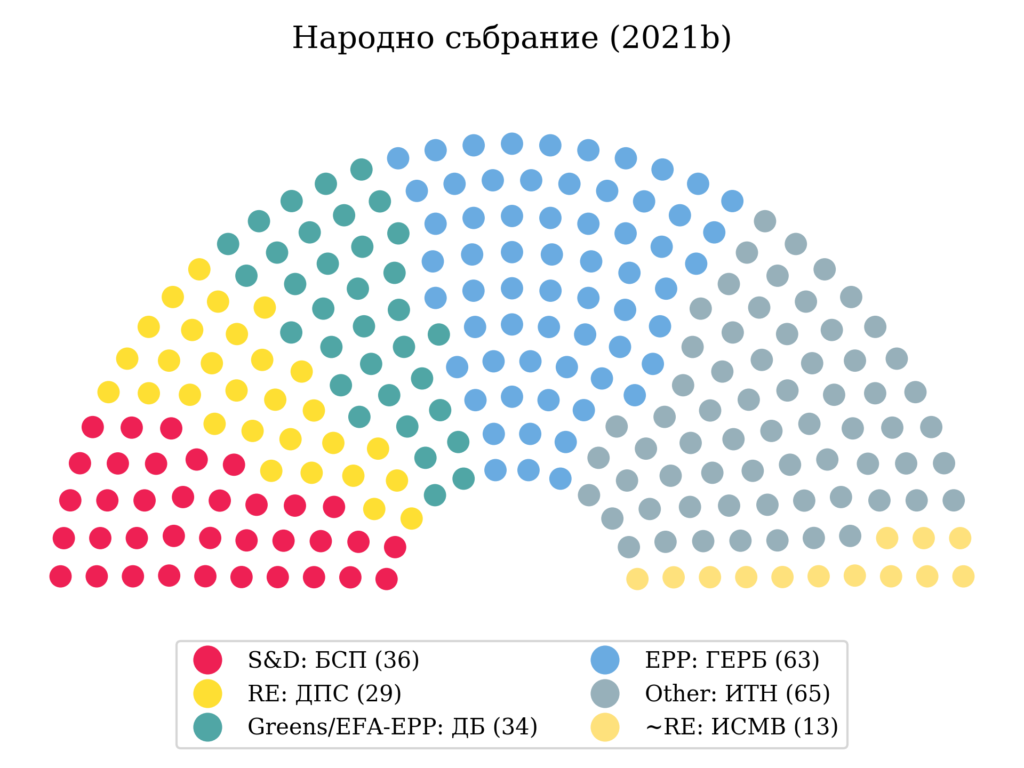Parliamentary elections in Bulgaria, 11 July 2021
Issue
Issue #2Auteurs
Dragomir Stoyanov , Milen Lyubenov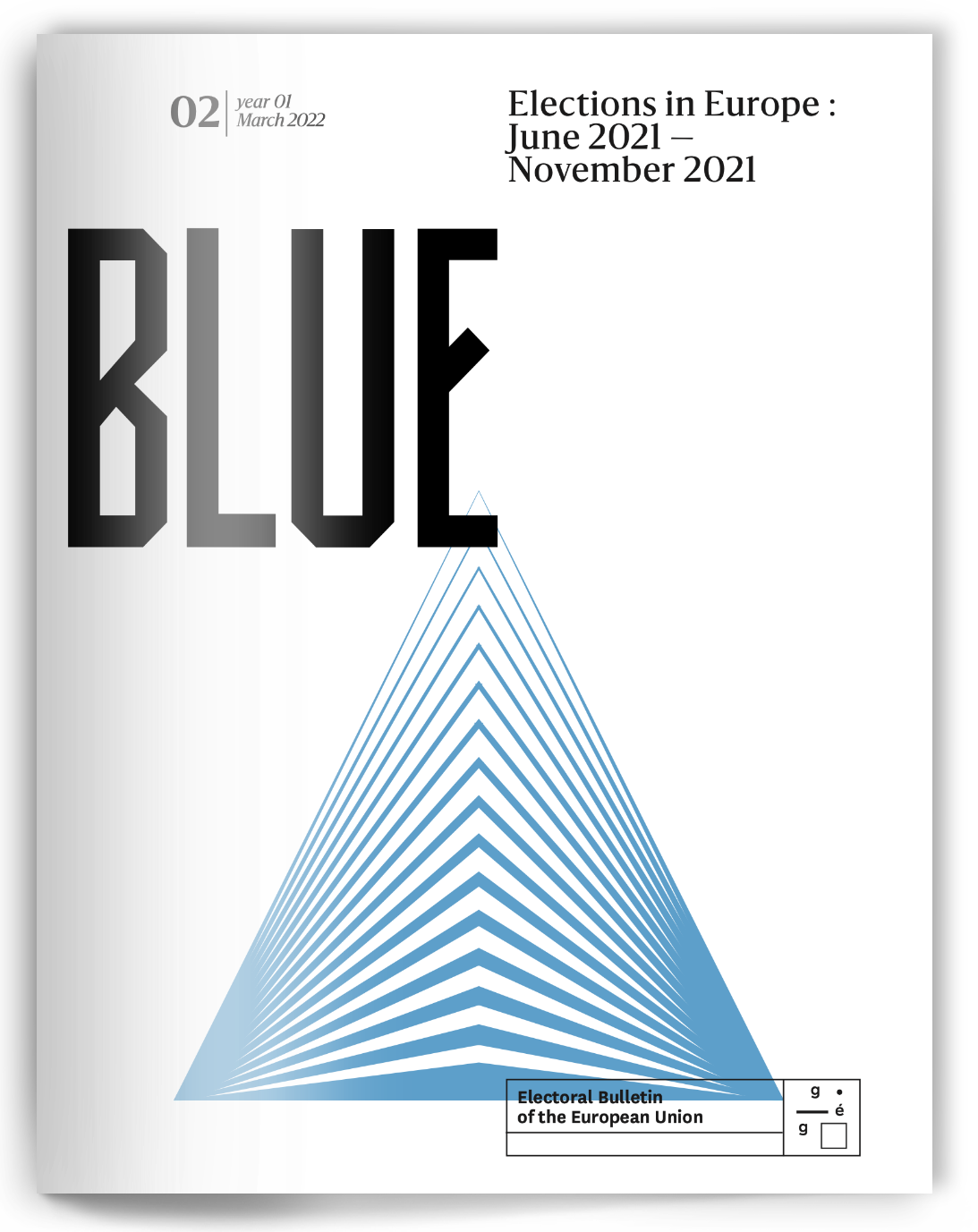
21x29,7cm - 167 pages Issue 2, March 2021 24,00€
Elections in Europe : June 2021 – November 2021
The snap parliamentary election on July 11th came after the 45th National Assembly failed to provide for a regular government, and subsequently the president Rumen Radev dissolved the National Assembly and appointed a caretaker cabinet. The reasons behind the parties’ failure to form a regular government were twofold: from one side the level of political fragmentation in the newly elected Parliament was significant (4 party coalitions and 2 single parties), from the other the level of political polarization in the institution was very high. The electoral campaign of the so-called parties of the change (There is Such a People – ITN, the coalition Democratic Bulgaria – DB and coalition Stand Up! Thugs Out! – ISMV) was based on a severe criticism of the ruling party GERB and the abundance of corruption scandals during its governing periods (2009-2013 and 2014-2021). As a result, despite being a winner of the April 2021 election, GERB turned out to be politically isolated and regarded as a “toxic” and unacceptable political partner.
But the parties of the change had another hard to swallow potential partner as well, this was the party of the Turkish minority in Bulgaria, the Movement for Rights and Freedoms (DPS). Although formally not in power, the DPS party officials profited significantly from the governing period of GERB. The party was perceived by the other parties as a “behind the scenes” coalition partner of GERB, and the newcomers in the parliament excluded cooperation with it. Thus, Bulgarian Socialist Party (BSP) turned out to be the only party of the status quo that could serve as a coalition partner, but ITN and DB opposed the coalition with the post-communist party. In the end, the three attempts to form a government in the 45th Parliament failed, and early elections were called.
The Context of the Snap Elections
The caretaker government appointed by the President started a process of “revision” of the 11 year-long GERB’s governing period by exposing the numerous violations committed by the previous government. Some of the violations included abuses of public procurement, distribution of loans worth hundreds of millions of Bulgarian levs to oligarchs close to the government by the Bulgarian Development Bank. For the GERB and DPS there were troubles coming from abroad as well, on June 2nd the US Treasury Department declared sanctions against Bulgarian oligarchs close to GERB and DPS under the Global Magnitski Act. These oligarchs were accused by the State Department of significant corruption, an accusation that added to the image of graft of the two parties. At the same time, the interior minister of the caretaker government disclosed data on the illegal wiretapping of hundreds of people during last year’s protests – among them opposition politicians, journalists, and representatives of the non-governmental sector. These scandalous revelations affected the election campaign and for the first time since its creation in 2006, GERB lost the parliamentary elections.
Turnout
The turnout of the July snap election was remarkably low at 42.19%. There were several reasons for this low turnout: first, some of the voters were disappointed with the outcome of the April elections and decided not to participate again. Second reason has to do with the caretaker government’s own efforts to curb vote buying, corporate voting and other illegal voting practices. According to some media reports, these efforts had some effect on the voting activity in several country districts. Third, timing of the elections in July, when many people prefer to go on holiday at the seaside instead of queuing in front of the ballot box. The final reason has to do with the ballot boxes themselves. for the first time in Bulgarian electoral history machine voting was used, in most poll stations. Despite the government’s and some parties’ campaign to popularize the machine voting, many retired and less educated people were afraid that the machine voting is too complicated for them. On the election day these voters preferred not to vote. The combination of political polarization and the record low turnout did not help the legitimacy of the newly elected parliament.
Party results
The results of the parties were not surprising, and the sociological polls before the elections correctly indicated the outcome of the elections. GERB lost a national election for the first time in 11 years. GERB’s results in the vote within Bulgaria confirmed its leading role in the country, but Bulgarians living abroad massively supported the populist ITN and thus changed the overall result. BSP was in the third place as in the previous elections and its electoral support continued to decline. The other parties and coalitions that entered the 46th parliament were DB, DPS, and IMV.
ITN
The party that succeeded in interrupting the long record of GERB victories is ITN, founded by popular showman Slavi Trifonov in 2019. With the slogan “It’s time for something else” the populist ITN received 657 829 votes or 24.08%, an increase of almost 100 thousand votes and about 7 points compared to the regular elections in April (Kanev 2021: 61-65). This result secured the first place for the formation and 65 seats in the 240 MPs parliament. While impressive, this result falls far short from the 121 seats needed for parliamentary majority. This also meant that ITN needed strong support of other parliamentary parties to form a cabinet. Garnering this support turned out to be a very difficult task for the party. With the approach “take it or leave it” the party proposed two cabinets that failed to secure the support of the other parties. During the electoral campaign the party relied heavily on the popularity of its leader and tried to attract people who are not interested in politics or those with anti-establishment and anti-system views. The party campaign relied heavily on Trifonov’s Channel “7/8” and different social networks. The politicians from the party refused to participate in TV debates and their positions regarding the Bulgarian economic and social development are still not clear. The party received significant support not only in the country but abroad and it was the votes of Bulgarians living abroad which secured the party the first position. The support of the party is coming mostly from young (18-30 years old) people with university or secondary education, including both those who are working or unemployed. The party succeeded to broaden its geographical presence and finds support in big cities as well as towns (Figure a).
GERB-SDS
The coalition of GERB with the marginal Union of Democratic Forces (SDS) was second after ITN. 642,165 voters (almost 200 thousand voters less than in April) or 23.5% of the voters voted for the former ruling party and its coalition partner (see “data” panel). GERB-SDS lost by a small margin, and this is due to votes from Bulgarians abroad, where ITN won convincingly, and GERB-SDS remained in 4th place with only 9% of the vote. Thus, GERB-SDS got 63 seats in parliament.
During its stay in power the party GERB developed some characteristics of a clientelist party, and due to this increased its membership. By 2019 the membership reached over 90,000 members, making it the largest party in the country. This is the main reason for the party to keep leading positions after these parliamentary elections, despite the severe reputational damages it has suffered during the its governing mandate, the citizens protests in 2020, and the harsh criticism from the other political parties.
The structure of the vote for GERB didn’t change from April 4th. This structure is close to the demographic structure of the country and the coalition was supported equally by both men and women, by those educated at the university and primary level. The main electoral core of the party are public sector employees, the state administration, as well as the clientele of companies close to the government. GERB also relies on its strong influence and representation in local governments – especially in the biggest cities of the country (Sofia, Plovdiv, Varna, Burgas – see Figure b, left). The party is well represented in smaller towns and villages as well.
BSP
In these elections, BSP and its marginal coalition partners reached a historic low result with 365,695 or 13.4% of the vote (see “data” panel). That’s a drop of nearly 115,000 votes compared to the April 4th election. The party won 36 seats in the National Assembly, and for the first time registered less than 40MPs in the 240 MPs Parliament. The main reason for this result was the ongoing internal party clashes between the various wings in the party. The leadership blamed its poor result on the machine voting, was difficult for the older voters who form the core of BSP supporters. As in previous elections, mainly elderly people with lower education, and those living in smaller towns and villages voted for BSP. The attempts of the party to mobilize younger voters failed one more time. The BSP continues to be the party that attracts the smallest number of young voters between the age of 18 and 30, and this is a major problem for the party’s future. One reason for this can be found in the contradictory messages that the party has been sending for the last 4 years under the leadership of Korneliya Ninova. During the electoral campaign the party seemed disoriented, and with a lack of clear and well-articulated positions. And that repelled many moderate and centrist voters. Thus, young professionals living in big cities are mainly represented by parties in the right part of the spectrum.
DB
A coalition that significantly improved its electoral result in July 2021 was DB. The formation received the votes of 345 331 (compared to 302 380 in April) people but because of low turnout gained 12.64% (9.45% in April). This allowed the coalition of liberal (Yes, Bulgaria), green (Green Movement), and conservative (Democrats for Strong Bulgaria) parties to send 34 MPs (27 MPs in April) to the parliament, and to have a more important role during the government negotiations. As in the previous elections it won most of its votes in Sofia, and confirmed that GERB is no more the most influential political actor in the capital (see “data” panel). DB received significant support not only in the largest city but in Plovdiv and Varna as well (Figure d). The demographic profile of the coalition shows that it is supported by employed young (18-30) and middle aged (31-60) people with university education. The ideological profile of DB is economically and socially liberal. It is a strong supporter of the Bulgarian EU membership, and advocates for a deeper integration of the country in EU structures. Following its reformist agenda, the coalition made an electoral campaign based on anti-corruption, aggressively criticising the corruption practices during the GERB governing period and insisting on a deep reform on Bulgarian judiciary system. The coalition’s priorities have the support of socially influential part of the Bulgarian society but are still not easily recognised as priorities by significant part of the population. Thus, if DB wants to increase further its electoral result needs to broaden its reformist agenda.
DPS
A little over 290,000 voters or 10.7% of the voters voted for DPS. That’s 45,000 fewer votes than in the previous election three months earlier. Thus, DPS has been represented by 29 MPs in the 46th National Assembly. DPS, which is backed up by ethnic Turks in Bulgaria, has been the third largest party in the country for many years. Gradually the party became an organization behind the interests of the country’s biggest oligarchs, managing political influence over key institutions in the judiciary such as the prosecutor’s office. Despite the opening of 121 polling stations in Turkey, the DPS received 26,000 votes after the restriction of no more than 35 non-community polling stations was lifted. That’s 4,000 votes more than the election on April 4, when the sections were only 35. However, the general trend is towards decreasing the votes for DPS from Turkey. The main reason is that in Turkey grows a second generation of citizens of emigrants from Bulgaria in the late 80s of the twentieth century, who no longer feel the need to connect with Bulgaria and with the DPS. The vote for the DPS also decreased on the territory of Bulgaria after the country’s membership in the EU. After that, many Bulgarian citizens went to work abroad, especially from the poor areas in Northeastern and Southeastern Bulgaria, where most ethnic Turks live.
ISMV
The result of the coalition ISMV decreased slightly but the group of left and centrist parties succeeded, one more time, to pass the electoral threshold of 4%. ISMV received the support of 136 885 (compared to 150 940 in April) voters and with 5.01% (4.72% in April) send 13 MPs (14 MPs in April) to the new Assembly. The structure of the coalitions voters shows that this formation is supported predominantly by people with university education at the age 31-60 living in Sofia and other big cities (Figure f). After entering the Parliament this electoral coalition showed the level of cohesiveness is not very high, there were some in-coalition conflicts, and this is perturbing for the future of this formation. It was very active during the government negotiations but didn’t succeed to convince ITN and DB to form a government with the support of BSP.
Conclusion – Red-lines and new elections
Political parties elected after the July 11th elections entered the new parliament with a lot of red-lines issues among themselves. GERB and DPS were still regarded as unacceptable political partners and remained in isolation. BSP was one more time ready to compromise but DB and ITN were reluctant to cooperate with it. The attempts of ITN to form a minority government without the support of other “parties of the change” provoked significant tensions in the parliament and raised questions about the party’s capacity to lead a government. GERB-SDS mandate to form a cabinet failed, after the refusal of all other parties to negotiate with them. The last attempt to form a government by BSP failed as well. Thus, for the second time in this year the parliament was dissolved, and the president Rumen Radev appointed a new caretaker government. New parliamentary elections are scheduled for 14th of November, and this time they will coincide with regular Bulgarian Presidential elections. This two-in-one election suggests an interesting electoral campaign, and the expectations are for a higher turnout. If this happens, the new parliament will gain more legitimacy, and some of the red-lines may fade away. The big challenge for Bulgarian politics will come in the days after the election – to form a viable coalition to govern the country.
Literature
US Department of the Treasury (2021, 2 June). Treasury sanctions Influential Bulgarian Individuals and their expansive networks for engaging in corruption. Press release. Online.
Central Electoral Commission of the Republic of Bulgaria (2021). Results of the Parliamentary Elections on July 11th 2021. Online.
Gallup International (2021, April). Sondages de sortie des urnes, avril 2021. Nova.bg. Online.
Kanev, D. (2021, September). Parliamentary Election in Bulgaria, 4 April 2021. BLUE/Electoral Bulletin of the European Union, n°1, pp. 61-65.
Trend (2021, July). Sondages de sortie des urnes. Online.
citer l'article
Dragomir Stoyanov, Milen Lyubenov, Parliamentary elections in Bulgaria, 11 July 2021, Mar 2022, 96-101.
à lire dans cette issue
voir toute la revue






